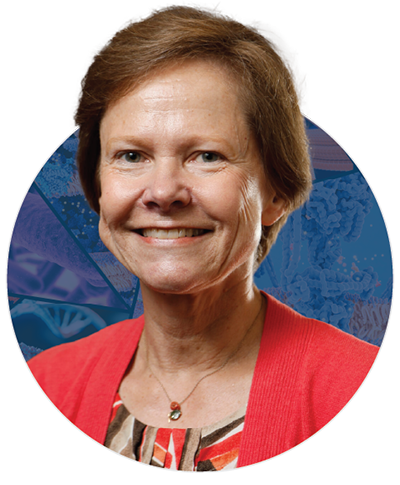Surprising enzymatic role of OB-fold containing proteins in translational fidelity
Speaker

Karin Musier–Forsyth
Professor of chemistry and biochemistry, Ohio State University
Karin Musier–Forsyth obtained a Ph.D. in chemistry from Cornell University. She was an American Cancer Society Postdoctoral Fellow in the laboratory of Paul Schimmel at M.I.T. and a faculty member at the University of Minnesota from 1992–2006. In 2007, she moved to the Ohio State University, where she is the Ohio Eminent Scholar in biological macromolecular structure and professor of chemistry and biochemistry. She currently serves as director of the OSU Center for RNA Biology. She has published over 200 research articles, book chapters and reviews and has served as an associate editor of the Journal of Biological Chemistry since 2018.
The ASBMB Breakthroughs webinar series offers a window into the cutting-edge biochemistry and molecular biology research driving discovery.
In eukaryotes, aminoacyl-tRNA synthetases (ARSs) team up with non-ARS proteins to form large multi-enzyme complexes (MSCs). We recently showed that in Trypanosoma brucei some of these “scaffold” proteins do more than just support—they actively edit tRNAs. One protein, MCP1, unexpectedly removes small amino acids such as alanine and serine from tRNAs, despite lacking any known editing domains. This editing ability comes from its oligosaccharide/oligonucleotide-binding (OB) fold, with key amino acids driving the reaction. Excitingly, similar MSC scaffold proteins in yeast and humans also show this activity, revealing a surprising, conserved function and an entirely new family of tRNA-editing enzymes.
